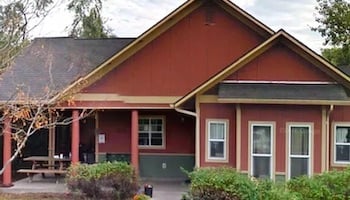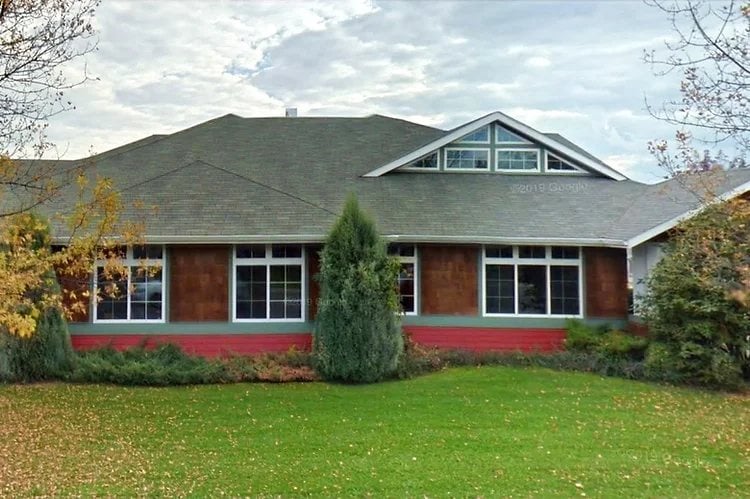Dakota Place once was a good place to go for a crisis, but sadly not anymore. They rely too much on telahealth; the on site staff just sits in the office, and clients watch tv/movies, and if you need to talk to someone you have to wait for a mental health professional to ta ...
About WMMHC- Dakota Place Crisis Facility
Dakota Place Crisis Facility is operated by Western Montana Mental Health Center and provides crisis stabilization services in Missoula, Montana. The staff provides inpatient care to individuals who are experiencing a life threatening crisis. After finishing their stay at the facility, they can be referred to Western Montana Mental Health Center’s addiction treatment location if needed.
A Short Term Stay For Stabilization
Clients in the crisis stabilization facility typically stay for about three to seven days. During your time there, you’ll receive intensive support to help you stabilize. This can include counseling and evidence based behavioral therapies.
The staff might begin teaching you coping skills that can be effective for avoiding substance use as a coping mechanism. The treatment team and the crisis facility staff focus on guiding you towards resolving your crisis and helping you develop a plan for continuing care after you leave the facility.
Healing Through Exploring History and Art
A great sober activity you can consider is visiting the various history and art museums that are in town. One option that I think stands out is the Montana Natural History Center. It has an art gallery, a native plant garden, and interactive exhibits.
Continued Recovery Through Addiction Treatment
The Dakota Place Crisis Facility can refer you to addiction treatment facilities operated by Western Montana Mental Health Center. The services that will be used to help treat your substance use disorder include medication for opioid use disorder, residential housing, community support and individual and group therapy. The organization also provides peer support services.
Latest Reviews
Rehab Score
Location
Accepted Insurance
Other Forms of Payment
Private insurance refers to any kind of healthcare coverage that isn't from the state or federal government. This includes individual and family plans offered by an employer or purchased from the Insurance Marketplace. Every plan will have different requirements and out of pocket costs so be sure to get the full details before you start treatment.
Self-pay involves paying for treatment out of your own pocket. You can use savings or credit, get a personal loan, or receive help from family and friends to fund your treatment. If you don't have insurance or your insurance plan doesn't cover a specific program, self-pay can help ensure you still get the care you need.
Financial aid can take many forms. Centers may have grants or scholarships available to clients who meet eligibility requirements. Programs that receive SAMHSA grants may have financial aid available for those who need treatment as well. Grants and scholarships can help you pai for treatment without having to repay.
Sliding scale payments are based on a client's income and family size. The goal is to make treatment affordable to everyone. By taking these factors into account, addiction recovery care providers help ensure that your treatment does not become a financial burden to you or your family, eliminating one barrier to care.
Military members, veterans, and eligible dependents have access to specific insurance programs that help them get the care they need. TRICARE and VA insurance can help you access low cost or no cost addiction and mental health treatment. Programs that accept military insurance often have targeted treatment focused on the unique challenges military members, veterans, and their families face.
Medicaid is a state based program that helps lower-income individuals and families pay for healthcare. Medicaid covers addiction treatment so those enrolled can use their coverage to pay for rehab. When a program accepts Medicaid the client often pays very little or nothing out of their own pocket.
Addiction Treatments
Levels of Care
Clients enrolled in outpatient rehab typically reside in their own homes and many continue to work and/or attend school while receiving addiction treatment. The frequency and intensity of outpatient treatment varies based upon the clients' evolving needs. Many programs offer a full continuum of outpatient care, including partial hospitalization (PHP), intensive outpatient (IOP), sober living/halfway housing, and standard outpatient services. The most common treatment modalities are psychotherapy, life skills training, and medication assisted treatment (MAT).
Residential treatment programs are those that offer housing and meals in addition to substance abuse treatment. Rehab facilities that offer residential treatment allow patients to focus solely on recovery, in an environment totally separate from their lives. Some rehab centers specialize in short-term residential treatment (a few days to a week or two), while others solely provide treatment on a long-term basis (several weeks to months). Some offer both, and tailor treatment to the patient's individual requirements.
Clients who still need robust recovery care, but also need to remain in or return to their own homes may choose to enroll in an intensive outpatient program (IOP). These programs feature frequent, high-level treatment, often combining a variety of modalities, including addiction counseling, recovery education, and holistic therapies. Clients in alcohol and/or opioid recovery may also receive medication assisted treatment (MAT). Most intensive outpatient rehabs require clients to participate in nine to 20 hours of treatment weekly.
Treatments
Mental health rehabs focus on helping individuals recover from mental illnesses like bipolar disorder, clinical depression, anxiety disorders, schizophrenia, and more. Mental health professionals at these facilities are trained to understand and treat mental health issues, both in individual and group settings.
Programs
Adult rehab programs include therapies tailored to each client's specific needs, goals, and recovery progress. They are tailored to the specific challenges adult clients may face, including family and work pressures and commitments. From inpatient and residential treatment to various levels of outpatient services, there are many options available. Some facilities also help adults work through co-occurring conditions, like anxiety, that can accompany addiction.
Young adulthood can be an exciting, yet difficult, time of transition. Individuals in their late teens to mid-20s face unique stressors related to school, jobs, families, and social circles, which can lead to a rise in substance use. Rehab centers with dedicated young adult programs will include activities and amenities that cater to this age group, with an emphasis on specialized counseling, peer socialization, and ongoing aftercare.
Serving in the military is both mentally and physically challenging, and can result in trauma that persists even after combat ends. Military programs are tailored to the specific and often complex needs of active duty personnel, veterans, and military families. Clients often access these programs through the U.S. Department of Veterans Affairs (VA).
Clinical Services
Cognitive Behavioral Therapy (CBT) is a therapy modality that focuses on the relationship between one's thoughts, feelings, and behaviors. It is used to establish and allow for healthy responses to thoughts and feelings (instead of unhealthy responses, like using drugs or alcohol). CBT has been proven effective for recovering addicts of all kinds, and is used to strengthen a patient's own self-awareness and ability to self-regulate. CBT allows individuals to monitor their own emotional state, become more adept at communicating with others, and manage stress without needing to engage in substance abuse.
Group therapy is any therapeutic work that happens in a group (not one-on-one). There are a number of different group therapy modalities, including support groups, experiential therapy, psycho-education, and more. Group therapy involves treatment as well as processing interaction between group members.
In individual therapy, a patient meets one-on-one with a trained psychologist or counselor. Therapy is a pivotal part of effective substance abuse treatment, as it often covers root causes of addiction, including challenges faced by the patient in their social, family, and work/school life.
Trauma therapy addresses traumatic incidents from a client's past that are likely affecting their present-day experience. Trauma is often one of the primary triggers and potential causes of addiction, and can stem from child sexual abuse, domestic violence, having a parent with a mental illness, losing one or both parents at a young age, teenage or adult sexual assault, or any number of other factors. The purpose of trauma therapy is to allow a patient to process trauma and move through and past it, with the help of trained and compassionate mental health professionals.
Research clearly demonstrates that recovery is far more successful and sustainable when loved ones like family members participate in rehab and substance abuse treatment. Genetic factors may be at play when it comes to drug and alcohol addiction, as well as mental health issues. Family dynamics often play a critical role in addiction triggers, and if properly educated, family members can be a strong source of support when it comes to rehabilitation.
Experiential therapy is a form of therapy in which clients are encouraged to surface and work through subconscious issues by engaging in real-time experiences. Experiential therapy departs from traditional talk therapy by involving the body, and having clients engage in activities, movements, and physical and emotional expression. This can involve role-play or using props (which can include other people). Experiential therapy can help people process trauma, memories, and emotion quickly, deeply, and in a lasting fashion, leading to substantial and impactful healing.
Amenities
-
Residential Setting
Staff
Bob Lopp
CEO
Cory DeStein, LPN
Chief Administrative Officer
Aubrey Reed, MA, MSW, LCSW,PMH-C
Chief Clinical Officer
Patrick Maidman, MD
Medical Director
Theresa Marshall
Director of Human Resources
Callie Holleran, RN
Director of Nursing
Colter Schilling
Director of Information Services
Ryan Bailey
Director of Support Services
Contact Information
1273 Dakota St
Missoula, MT 59801






